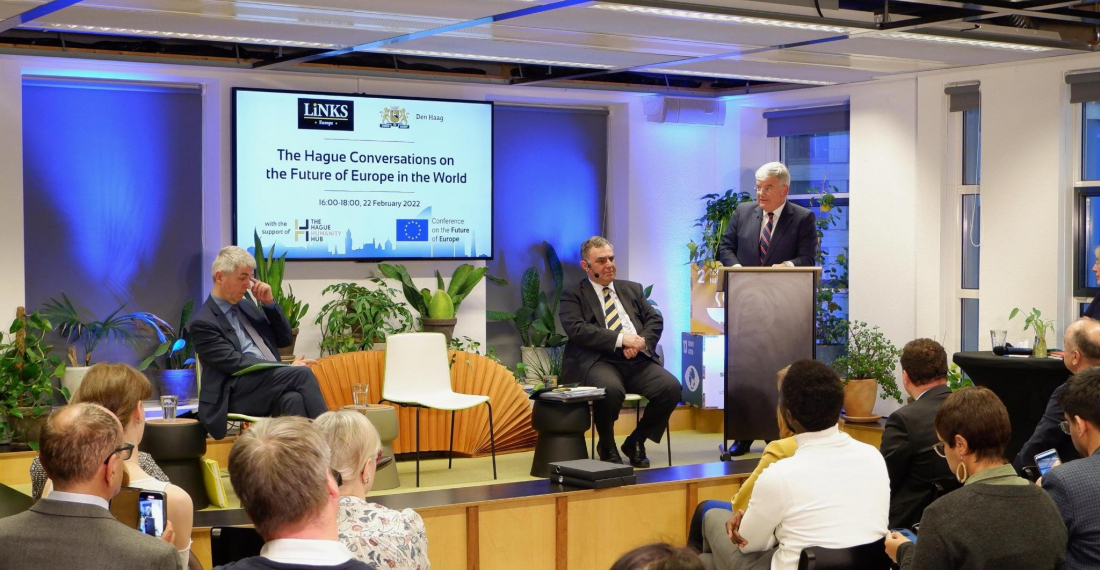commonspace.eu is pleased to be the media partner for the closing event in 'The Hague Conversations on the Future of Europe in the World' – a series of ten activities organised by LINKS Europe in association with the City of The Hague and with the support of the Hague Humanity Hub. The events were mostly held in person, with some also held online or in hybrid format, from September 2021 to February 2022 as part of the “Conference on the future of Europe” process.
For today's event, we are delighted to welcome as speakers and guests of honour:
- The Mayor of The Hague, Mayor Jan van Zanen
- The Deputy Head of Cabinet to European Commission Vice-President Dubravka Šuica, Ivo Belet
Before their presentations, LINKS Europe’s Dr Dennis Sammut will present an advanced draft of the paper ‘The Hague in Europe, Europe in the World’, which aims to capture the mood, ideas and vision that emerged in the process of the dialogue exercise, ‘The Hague Conversations on the Future of Europe in the World’, held in The Hague from September 2021 to February 2022. Tony van der Togt, Senior Research Associate at The Clingendael Institute, and Dr Walter Kemp, Lecturer at the Diplomatic Academy in Vienna, will then share their thoughts on the paper. There will then be a discussion with audience participation. After the event, the report will be finalised and submitted to the EU as part of the Conference on the Future of Europe process, ensuring the voice of the people of The Hague is heard in this important forum.
Access the advanced draft of 'The Hague in Europe, Europe in the World' here.







